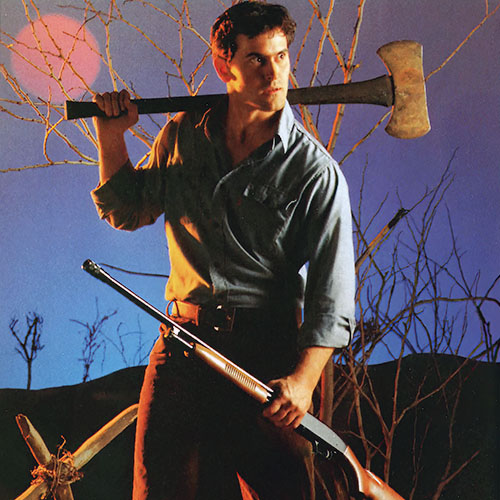“If a guy’s going to give me $3 million, he can call me a Jew prick. I’ll put on a skirt and dance with him if necessary to get the money, if I can see the children not sitting in wheelchairs anymore.”
Penthouse Interview: Jerry Lewis
Ever since he was typed as Dean Martin’s preadolescent nerd back in the 1940s, Jerry Lewis has been beloved by some, scorned and all but spat upon by others. He has spent over 35 years relying on, yet trying to develop beyond, his screen persona of “the kid,” as he calls his alter ego. And despite his successes as a film producer-writer-director-star, nightclub performer, television host, U.C.L.A. college professor, and, most proudly, chief spokesman and fund raiser for the Muscular Dystrophy Association, Jerry Lewis at age 58 is still regarded as that inarticulate nine-year-old idiot with a case of terminal helplessness.
Even his worst detractors can’t deny the man’s talent as a physical comedian, as showcased to a standing ovation when he hosted Saturday Night Live. Lewis has made millions as a screen star. He still holds the record for having made more consecutive hit films than any other Hollywood personality. Unfortunately, a great portion of his earnings was poorly invested in such fiascoes as an Edsel dealership and a short-lived chain of Jerry Lewis cinemas, to which he lent his name, not knowing their mismanagement would lead to his bankruptcy.
It hasn’t been your ordinary life history. Born Joseph Levitch on March 16, 1926, Jerry Lewis grew up in the unstable world of vaudeville, where he was often separated from his trouper parents. Perhaps to attract attention, or more probably because he is and always has been an irrepressible clown, Lewis began performing at age five and has never stopped. His professional career started when he was 15, mugging and miming his way through a “record act,” accompanied by pop songs from an offstage gramophone. He was not particularly successful, however, until he met and teamed with another marginal performer, Dean Martin, in 1946. Within a year they were major nightclub stars, and with the release in 1949 of their first film, My Friend Irma, they became movie stars overnight.
Amid the success was much sorrow, some of it self-inflicted. Lewis’s partnership with Dean Martin failed, in part, because of Lewis’s confessed “use” of the singer as a foil. A long-running addiction to the painkiller Percodan nearly ended his film career by distorting his perceptions and dulling his talent. His 36-year marriage to his first wife, Patti, he now admits, failed because of his single-minded pursuit of success and just plain boredom. And his near suicide was induced not only by excruciating physical pain but also by the total collapse of a once-triumphant world that had been very carefully made to his own specifications.
Despite the odds, and after a decade of derision and failure, Jerry Lewis came back strong with Hardly Working, in 1980, his first feature film in ten years. A dud with the critics, it was a commercial success that outgrossed The French Lieutenant’s Woman, Missing, and S.O.B., and proved his enduring popularity as a “funny-man” — a title he’s never had to suffer from European fans, who widely regard him as the greatest comedian since Chaplin.
“Jeree!” the Parisians shout when they see him on the street, stopping him for a handshake, a hug, or a kiss. Of course, if Lewis goes for half a block in Paris without being recognized, he’ll create such a scene that people will gather to see who he is. On one occasion he disrupted traffic in the Place Victor Hugo for several minutes, hamming it up for the public and soaking in all their love and attention.
The European passion for Jerry Lewis’s humor gave the comedian much-needed support when times were rough; and his long-dreamed-of invitation to star in a French film finally came, fresh on the heels of his first major dramatic role last year in Martin Scorsese’s The King of Comedy. Penthouse writer James Delson spent two weeks in Paris talking with Lewis just before the start of production on To Catch a Cop, which will be released late in 1984.
In their first session together, Lewis was cautious and guarded for about two hours. Then, as he gradually opened up, he told an anecdote about the one and only journalist who ever tried talking to Jerry (aka “the kid,” aka “the idiot”). After only a few minutes, however, the journalist was so frightened and intimidated by the experience that he simply gave up. Rising to the challenge, Delson asked to speak with “Jerry, the kid.” Suddenly Lewis got up from the chair behind his desk and switched to another chair several feet away.
“Lewis’s personality changed dramatically as he sat down in the second chair,” Delson reports. “The kid slouched instead of sitting straight. He took on the air and personality of a nine-year-old, talking, giggling, and carrying on as if he were that child locked away but always ready to come out and play.”
Although Lewis only remained the kid for a few moments, it was sufficient, Delson surmised, to let this alter ego accept the journalist’s presence. Two weeks of conversation followed, and the nature of Lewis’s repartee was very different.
Thirty pounds overweight, Lewis now appeared relaxed, confident, and very much in love with his new bride, Sandee (who he calls Sam). They met while making Hardly Working, and now he repeatedly underscores her determined efforts to keep him afloat through the horrors of his drug withdrawal and recovery. He often complained about Sandee’s diet for him, but stuck to it religiously, losing his excess weight in two months so that he wouldn’t embarrass the Muscular Dystrophy Association during last year’s telethon.
As he consumed glass after glass of unsweetened lemonade, Jerry Lewis gave a wide-ranging talk that explored his addiction to Percodan, his marital infidelities, his inclusion on the Nixon enemies list, a near suicide, relations with organized crime, his Nobel Peace Prize nomination, and his son Gary’s horrifying Vietnam experience. And although he occasionally went off on an anti-press tirade, for which he is famous among journalists, the moody, schizoid, and legendary megalomaniac was nowhere to be seen.
Your style of humor hasn’t ever changed or been adapted to the times.
Lewis: I’ve never, ever allowed myself to be dictated to by the mores, morals, or fashions of the day. I’m just a fucking hard-liner. I can’t say “fuck” Onstage. Okay? We’re still there.
But you use blue humor in your act.
Lewis: Blue humor! The worst thing I do is swear. I swear, “If you get up, lady, and go to that toilee while I’m working, I swear I will put a hex on you and your ass will be stuck to the seat until 1999, when we’ll open it up as a capsule to see if you had diarrhea.” That’s as fucking blue as I’ve ever gotten in my life.
Richard Pryor couldn’t make it on network television, largely because his style of humor wasn’t “suitable” to the tube. NBC didn’t care to hear him say “motherfucker.”
Lewis: Clean that up and what have you got?
You’ve got boredom and a cancelled show.
Lewis: But Richard Pryor is one of the very few comic geniuses we’ve ever had in our business. And it’s not because he uses “motherfucker,” but because he knows where to use it. He throws it away, that’s the genius.
Would you say the same thing about Lenny Bruce’s timing?
Lewis: I know Lenny could not open his mouth in front of 5,000 people. He needed a couple of hundred in a small, smoky bistro to function.
Yet without Lenny Bruce a lot of comedians might not have tried to do what they did. And his persecution for “dirty” humor killed him. It’s criminal, especially when everything changed so quickly after his death.
Lewis: Oh, sure it’s criminal. Janis Joplin isn’t criminal? Mama Cass? When I get up in the morning and I read in the paper that a certain comedian blew his fucking brains out, I want to call the mortuary and say, “Before you close the box, let me have one fucking crack at his fucking face.” Can you believe how cold I am when I hear somebody takes his life?
You came pretty close yourself.
Lewis: That’s probably what helped me realize what the fuck I’m talking about. I came as close as you could come. I had the thumb in the cocking position.
You were addicted to Percodan at the time?
Lewis: Thirteen a day.
How did you become so dependent on it?
Lewis: A piece of my spinal column chipped off in a bad fall. I’d have been better off breaking my back. The pain from March 20, 1965, through today hasn’t changed. I can only describe the way I feel with a joke. Imagine taking your top lip and lifting it all the way over your head. My left eye goes almost totally out of focus. Both of my legs feel like I’m walking and yet I’m not getting anywhere, the pain is so severe. Yet when I was put on Percodan I would take one and in about 20 minutes I would be able to relax. From 1965 until 1972 I was able to handle the pain on one and two a day. The next year I was buying them on the streets.
You once paid $1,000 for ten?
Lewis: I’m embarrassed to say there was a night when I paid $500 for one. I had bought the ten the night before. What the fuck is a hundred apiece? Now this guy took me in the back room of Green’s delicatessen and said, “This one, bloke, is $500 for you.” And even though I knew I still had nine, this gave me another one. I gave him the $500. When De Bakey [Michael De Bakey, the heart surgeon] cleaned me out, I flushed, crushed, discarded, and threw away about 7,000 or 8,000 Percodans.
How were you able to get so many?
Lewis: I found a connection, gorgeous. I was getting them right off the shipping ramp.
What was your prescription dose at that time?
Lewis: My prescription dose at that time was nothing.
And in doctors’ checkups, in blood tests, in anything, they had not been aware of your …
Lewis: Everybody close to me knew that I was on something. That I wasn’t myself. If this interview had happened eight years ago, you still would not have gotten your first fucking question in. By the time you’ve taken nine your brains are so fucked up that you get very verbal, very elated, very high, but you also get on real bad bummers, and you forget things …. When Frank [Sinatra] brought Dean [Martin] onto the telethon, people wondered, was it really a surprise? I didn’t have any recollection of it the next day. I had to run a videotape to see what happened because I was told Dean and I were on television. I don’t have any recollection of doing telethons ’73, ’74, ’75, ’76, ’77. I don’t remember those five years. Those five years are blank.
Was a major reason you stopped making films because you were unable to handle their management?
Lewis: I think so. I was not able to handle the management of my life.
The drug also made you impotent?
Lewis: The constipation was worse. On six or seven a day, you’re not only impotent but you also can go without a bowel movement for four weeks.
How did you manage to stay awake with all those Percodans in your system?
Lewis: Uppers. Dexedrine. When I got up in the morning it would take 20 minutes for me to get out of bed, having slept in a brace all night. When I stayed in hotels, I would give a bellboy $25 or $30 every day to knock on my door, open it with the pass-key, crush three Percodans with a spoon for me, then dissolve them in hot water from room service so they would get into the bloodstream faster. I’d lay there for 20 fucking minutes, until I could move, then get up and pop a Dexedrine.
What prompted your suicide attempt?
Lewis: Pain. It got so bad one afternoon. It didn’t compare with anything I’d felt before: a futile pain I just couldn’t beat. I felt everything was finished. I didn’t have the stamina to sustain one more sweep of that red hand on the clock, and it would be over so fast, and would be such a relief.
What did you do?
Lewis: I had a combination lock on the drawer. Took ten minutes to undo it because I was nervous and in such fucking pain. I got the .38 out, flicked it open, checked it, loaded it, took it off the empty chamber, put it on a full chamber, and put it right into my mouth. You know how you chew a piece of gum sometimes with a bit of tinfoil still stuck to it, that terrible feeling? Put a fucking .38 barrel in your mouth and see what that tastes like. All of that couldn’t have taken more than 45 seconds; the continuation of it would have been another 5 seconds. I’m starting the action on that Smith and Wesson, baby, and then … I heard my kids running down the hall, laughing, and I stopped.
Have you ever considered suicide since then?
Lewis: No. I’ve had the same pain since, but I’ve learned how to handle it, and handle it clean. I can almost turn it into pleasure. All I do is float. I lean my head back, close my eyes, and think, “I’m alive, this [pain] is for a reason, and it will pass.”
When you began in the film business you had a reputation as a ladies’ man.
Lewis: Oh, yeah, I did good. That reputation, which I would oh so love to keep at this time of my life, in the autumn of my life, was no different from anyone else in Hollywood, except I was a little busier. I used to have numbers: 29? Is 18 still waiting?
Was this a tacit understanding with your wife, Patti?
Lewis: No.
Was she unaware of your extramarital activities?
Lewis: She’d kick it under the rug if she were aware of it.
Were you generally discreet about it?
Lewis: I was discreet. A couple of times I was as discreet as a fucking bull taking a piss in your living room.
Then why did you stay together?
Lewis: Because I was a fucking idiot.
But you stayed together 30 years.
Lewis: So we had 30 good years. Only one day I guess I realized, “Hey, you only go around once. I’m at the three-quarter turn. I haven’t had a lot of fucking laughs.” I went to Florida to make Hardly Working and felt a distinct difference in how happy I was, with all of those responsibilities left behind in California. I was literally playing bachelor for the first time, and I really enjoyed it. I finally let Patti know that I wasn’t making my children happy, I wasn’t making her happy, and maybe I needed to be a bachelor. I never figured on meeting Sam. She fucked up the whole game plan, for chrissakes! I was going to do such swinging, with plenty of playing. “Let’s get a yacht, fuck three-quarters of Brazil, Fred.” But Sam came along and touched my heart — and saved my heart.
“Don’t go talking draft if you’re going to go playing in El Salvador. You ain’t getting any of my sons. If I have to, I’ll make cunts out of them. I’ll go chop.”
You were one of the first, if not the first, major filmmakers to recognize Steven Spielberg’s enormous talent. How did you cross paths with him?
Lewis: I heard about him from one of my students and asked him to bring his short film, Amblin’, to my class. And you could see that the work he was doing in his first week in filmmaking was brilliant. You didn’t have to be a Rhodes scholar to know he was a fucking genius.
You must have felt wonderful to have been present at the E.T. screening in Cannes in 1981, when the audience gave Spielberg a tumultuous round of applause.
Lewis: It was the longest ovation I’d ever seen. At the end of E.T. the audience stood, yelling “bravo” and applauding and stamping and whistling. And we’re talking about a black-tie-to-the-teeth, jewels-swinging-around-women’s-necks audience paying their praise to this young guy. It went on and on and on. Steven was up in the mezzanine, taking his bows. That terrible, wonderful discomfort of that kind of ovation. And I knew that he knew I was down in second-row orchestra. All the photographers were shooting, and in the middle of all this the lights spilled from Steven to the orchestra, and he saw me in clear view. And he just waved his hand, pointing and acknowledging my presence. Then, after the showing, we were together again at the Carlton Hotel. I put my arms around him and he said, “Was the teacher proud of me?” And was I ever. I was also jealous and envious. And anybody who says that he doesn’t know those feelings either doesn’t know what the creative process is or he is a liar. I was so proud of him. But I could feel my pride in him getting shoved by my jealousy of him.
You were offered a chance to perform at the Nixon White House. Why did you refuse?
Lewis: I received a call from Vice-President Agnew asking me if I would be kind enough to consider doing a one-man show at the White House for President Nixon. I said, “Mr. Vice-President, I hope you understand. I respect deeply, profoundly, the honor of being invited to entertain that office, but I could not in good conscience make myself available to perform for Richard M. Nixon.” The vice-president was very impressed with my candor. As I recall, the vice-president had to play two roles. He wanted to say to me, “It’s nice to talk to a set of balls for a change,” but he’d been given the job of securing a show. I said, “I also hope you understand that I did not want to say, ‘I’m not available,’ or say Okay and then make believe I got sick. I want you to know.” I was very impressed with the vice-president’s calling. Usually that’s left to the protocol office. I was very nervous making the turndown, but, with deep pride, I felt good about myself. Agnew said, “Is it because of the list?”
You mean the “enemies list”?
Lewis: No, not the one everyone knows about. This was a deeper list, which I found out about through friends and sources, that had a couple of hundred people on it. It was a “pull-tab-label-sticker list” that you’d be taken off of if you did a nice thing for them. Fucking sicko. Okay. Piece de resistance. After I turned down the White House, the IRS came in and did an audit on my books, payable on demand. My attorneys wanted to fight, but I said, “Pay the fucking $375,000.” That cocksucker.
Were you pleased when Nixon wasn’t put on trial?
Lewis: No. Oh, no. I was afraid that the whole judicial process would just crumble. And when I hear that Nixon is surfacing again, I think they didn’t nail enough of our beautiful young Americans at Kent State.
What about all the Nixon people who turned to Christ?
Lewis: Colson. Yes, born-again Christian. The only thing I liked about it was they had to shove him back up his mother’s cooz for him to be born again.
Is it coincidental that it wasn’t until 197 4 that your relationship to MDA and the telethon was impeached?
Lewis: From 1948 to 197 4 we never had one letter that said, “We don’t believe in what you’re doing. We don’t like the organization. Does Jerry get paid?” From 1948 to 1974, 26 years, not one negative letter, until Watergate. The moment Watergate happened, the mail started to trickle in. After Nixon — that infamous cock-sucker — said good-bye on August 6, when he waved good-bye, we got our first letter: “Does Jerry get paid?”
It’s also been suggested that some of the corporate officers with whom you deal, and who donate money to your cause, would not socialize with you because you’re a Jew.
Lewis: If a guy’s going to give me $3 million, he can call me a Jew prick. I’ll put on a skirt and makeup, dance with him, suck him if necessary, and get the $3 million if I can see the children not sitting in wheelchairs anymore. That’s not the time for integrity. That’s the time to prove what kind of man you are.
Have you encountered much anti-Semitism recently?
Lewis: Well, there was a guy in Columbus, Georgia, who had never met a Jew before. Came up to me in a restaurant. “Hey, sir, they tell me you’re with the Hollywood folk doing that film right there. Can I put my hands on the back of your head, feel your horns?” I said, “Feel this,” and I put his fucking head into a tray of fucking dishes. At a Paris press conference, someone said, “Jews get the bad reputation for making money.” I responded, “No, the Jews get the reputation for surviving. Because when you got 200 guys chasing you down an alley and you make it, they’re pissed.”
Were you surprised by your rapid rise to the top once you and Dean Martin teamed up?
Lewis: Surprised that it happened? No. Surprised by the speed at which it happened? Completely. Remember, Dean was a $150-a-week act when we started; so was I. But in less than four weeks we got a check for $3,000. Then I saw one for nine, then 29 … how about one for $259,000? That was a shock. But it was my plan. It was all working. My plan wasn’t to make that kind of loot with that kind of speed, but that’s what happened.
Do you regret any of the decisions you made in your quest of a film contract?
Lewis: Sure. There was a terribly selfish Jerry in there, in the early years, but I’m not thrilled about making the admission. I had an all-consuming desire to be in the movies. I used Dean and us and what we had, and geared for that.
Was he aware of this? Was he shooting for it as much as you were?
Lewis: Oh, yeah. Yeah. He let me do the work because we knew too many people talking at one time could mess things up. We were looking to just make movies, that’s all. And never having to ever leave Hollywood again.
Did you stay together, in part, because of a separation of powers onscreen and off?
Lewis: Yeah. It worked for both of us. If we had wanted to do the same thing, we’d have bumped into each other. Dean had no feelings for the technology of the business. “Say, Pallie, where’d they put the camera?”, that was Dean. “Do I sing my song today, Pallie?” “No, Dean, you sang that last week.” “Oh, groovy, I can play golf this afternoon.” He got in no one’s way, which was perfect, because the way he would have gotten into would have been mine.
In essence, your real-life and screen roles were reversed? In the movies, you were the flunky, but in real life…
Lewis: He felt he was being the stooge. He felt he wasn’t getting a fair share of the laughs. But all the films that Dean and I did had become so formularized that it just worked out that way.
You’ve chosen to do films that are light, not introspective, and serve the purpose of providing entertainment. Why is it that you don’t set out to make a picture of a more serious nature?
Lewis: I really don’t know. I don’t know if I’m scared. I don’t know if I can cut it. In my heart I know I’m a better writer today than I was 20 years ago.
Do you feel you’ve held yourself back?
Lewis: You hit a nerve.
Have you been wary of trying something different because you’re afraid of having your feelings hurt?
Lewis: I suffer from that fucking human illness called sensitivity. But like my dad, rest his soul, used to say, “You want to get up on the stage? They’re going to take shots at you. If you can’t handle the shots, then buy a ticket and sit in the back.” I never want to buy a ticket and sit in the back, ever. I want to be right there, with the brightest light on me. And everyone out there who bought tickets should look at me.
Your son Gary fought in Vietnam and came home a changed man. Did you try to get him out of having to go?
Lewis: I was going to call Bobby Kennedy to spring Gary from going to Vietnam. I explained what I could do and Gary said, “What do you want me to do?” I said, “I need you to be clear about the decision that you make.” He said he wanted to go and serve his country, and I was proud of him.
You were supportive of the war?
Lewis: That’s where we were at the time. I ran around Hollywood yelling, “Want to hear what my son said?” I only knew we were at war and they were going to draft my son. Once he was gone, I don’t think it took six months before I found out the fucking trouble we were in. I made three trips to Washington and by the time I came back I knew what we were doing in Vietnam — the immorality of it, the none of our fucking business of it. Now I carry fatherly guilt for being so fucking naive.
Most of the country was that naive.
Lewis: But if I had known the facts, when my son said, “I want to fight for my country,” I’d have ripped his fucking throat open. Instead, I got him back three years later and didn’t recognize him. The story he told of having lunch with one of his friends who got splattered across his chest — that’s real, that’s not movies! I’d come home from the studio and I’d see Gary sitting, staring out into space. Eight months, nine months, just sitting. I said, “Talk to me, just talk to me.”
Did you understand what he said when you did talk?
Lewis: Well, I knew about guns. We’d hunted together. But what could I say when my son asked, “Father, did you ever have your finger on the trigger and as you looked through the sight you see this man coming, who’s got a daughter like Sara Jane, and you have to squeeze the trigger or he’s going to get you?” I said, “You squeezed it, or you wouldn’t be here.” He said, “But she doesn’t have him.” I said, “Fuck him. I don’t know him. I don’t know if he has a daughter. You can help yourself by understanding that you might have got a single guy.” I didn’t know what the hell to say. But he had a favorite line: “Justify this for me, would you, Father? Tell me about this one.” Remember, Gary was cooking when he went into the service. Very, very big with his act, making a million dollars. Came back a mess, an absolute fucking zucchini. And the only thing that brought him around was a lot of love, a lot of care, a lot of understanding. He was smoking marijuana and he was taking ’ludes and this and that. I got him cleaned out, but then I supplied him with marijuana. He needed it for whatever his pains were. He came around pretty good.
What did you do when it came time for your second son to go?
Lewis: I was ready for “Stockholm, here I come.” Seriously thinking of looking for land around Sweden. They’ll never get another one of mine. They’ll have to come and get me. “It’s against the United States of America for you to withhold…” Really? Listen to this: [He mimics a gunshot.] Next? Who else is out there? Now if I saw the Ruskies on the shore of Malibu, I’d stick a gun in my granddaughter’s hand. That’s different. But don’t you go talking draft to me if you’re going to go playing in El Salvador. Fuck you with your El Salvador and Allende and Felbabi and Colonel Kelbobi. You ain’t getting any of my sons. If I have to make cunts out of them, I go chop. I’ll castrate them. Do you get the picture?
What are your views on the legalization of marijuana, and have you, in your time, smoked it?
Lewis: Yes. I’ve smoked it. And it is one of the greatest painkillers known to man. They are using it in a variety of medical situations that I know of, for glaucoma patients and cancer patients. I used it to get to sleep when I hurt my spine and got hooked on Percodan. The only thing that would give me the slightest degree of relief, so that I didn’t go through the wall every night of my life, was smoking a joint. All I’d need was two hits and I’d be asleep. They’d better legalize it because it’s too important and there are too many good doctors who haven’t come up with a reason it must be abandoned. Percodan, yes. You should be taken and put away for 30 years if you take a Percodan. That’s how dangerous that sucker is. But marijuana … take a look at the English and how they handle drugs.
Have you ever tried writing while stoned on grass?
Lewis: I did once, and I don’t think it’s very smart. Because it looked like an elf came in in the middle of the night, ate my mohair jacket, and wrote something that looked like the ball of the IBM machine: klzmagpszdna. When I smoke grass I get silly. I eat anything and anyone. I had a cousin Herb who hasn’t been seen for a year now. My Aunt Jean, her teeth are very loose because I sucked her gums out of her mouth from one kiss after having a couple of hits on grass. I wouldn’t dream of walking on the stage when I’m stoned.
I’d eat the audience.
Marijuana has a reputation as an aphrodisiac. Has it ever affected you that way?
Lewis: Generally I fall asleep too fast or eat, but once I came from January 3 to mid-February. It was the longest shoot in the history of America. I mean, it sucked my skin inward and became part of my marrow. The one thing that I wanted to do was experiment and smoke a joint with this chick I was seeing in Florida. I had had all kinds of fantasies about what that kind of insanity would be. But I couldn’t get a fuckin’ hard going.
Do you get silly?
Lewis: Oh, Christ. Do you know that I took chocolate Easter eggs and wrapped them in smoked salmon? Then I added a hunk of whitefish and pressed it together to make a sandwich! I also do new characters when I’m stoned. I’ve done voices I never knew I had.
Robert De Niro has the reputation of being a tough actor to work with. What was your experience with him and Martin Scorsese on The King of Comedy?
Lewis: In order to work with Bobby you have to make a deal with the Devil. Does that say it? He’s one of the best actors I’ve ever seen in my fuckin’ life when he’s banging it out of the park. Bobby is very, very much like Babe Ruth in that he gets 60 out of that park. But remember, Ruth struck out 3,766 times.
So you’ve got to wait until he gets it right?
Lewis: You bet. Bobby is no fool. He knows his craft. And that his craft needs his time, it needs his gut to go for it. Marty could tell him from now until next Tuesday that Take 5 was super. But De Niro knows fucking well that if he goes into Take 12 and 14 and 15, he’ll find an “if” and an “and.” If he does Take 20, he’ll pick up a quick turn, and on Take 28 he’s got lips tightening, which he never had through the first 27 takes. I watched him feign poor retention just to work a scene. I watched him literally look like he couldn’t remember the dialogue. He knew the fucking dialogue. It was masterful. There’s nothing he did that didn’t stagger me. Not the end result. What he did to get it done. I’m sure he worked the same way in his other films. Raging Bull, what a great film! Yet it didn’t make as much money as Hardly Working, probably the worst film I’ve ever made. I can’t understand that. I’m awestruck by Bobby’s work, by his commitment. But he fears intellect. He fears anyone who can say anything other than “Hi.”
Was the role of the talk-show host, Jerry Langford, a tough part for you to play?
Lewis: It was the easiest thing I’ve ever had to do. And when you get critical acclaim for not really doing anything, you have to say, “Hey, wait a minute. That was a piece of cake.” I was almost embarrassed to take the money for it.
If it’s easy, that doesn’t mean it’s not good.
Lewis: I didn’t say it wasn’t good. But it would have been one that was overlooked if it was done by a straight actor.
There’s a scene in The King of Comedy where the Robert De Niro character comes to your house uninvited, and you, the big TV star, get enraged at his arrogance. Is it true that De Niro started insulting you, saying that Jews caused all the problems in the world, to get your anger up?
Lewis: Yeah. I said, “You cocksucker, you’re lucky you’re alive. I’ll rip your fucking head off.” I didn’t know he and Marty had met already, to go for it. “Do you realize you are close to my ripping your fucking head off?” And the cameras are rolling. I know Marty is getting what he wants. I know Bobby is feeding me. But for me not to be aware of two cameras and an entire crew, and Bobby De Niro, throwing dialogue at me, “Maybe the Jews were motherfuckers in the first place.” That didn’t… But, “If Hitler had lived, he’d have gotten all of you cocksuckers,” was the fucking trigger. He knew … the son of a bitch knew. And he’s doing this to me because he’s just off camera. I pulled him into the scene by three feet, and I was on my way. Whew! He came into the dressing room. “Are you okay?” “Yes, I’m fine. I never want to work with you again.”
You’ve had a lot of experience as a talk-show host, filling in for Johnny Carson on occasion. You also seem to be one of the chosen few who can get away with destroying him on the air, like pouring things on him or ripping his clothes off. Does Carson make it known that you have license to create mayhem on his show?
Lewis: Yes, but by attitude, not verbal authorization. John knows that I’m not going to go that one step too far, and neither is he. You know, when I was wearing all that shit in my hair, he had the classic line, “If you’d ever take that shoe polish out of your hair, you’d be a nice-looking boy.” And that was at the beginning of the telethon, right? In front of 100 million people. You know what a joy it is for me never to use that shit?
Why did you?
Lewis: Because I kept my hair long and it’s very, very fine. I can’t stand stuff in my eyes, so I used that shit to keep my hair out of the way. But, oh, I got some pictures where I look like Anthony Quinn’s cunt. …I don’t know what that means.
Do you gamble when you work in casinos?
Lewis: I love to gamble. When I’m in Vegas I do it every two or three weeks.
When was the first time you gambled?
Lewis: Flamingo Hotel, Vegas, 1948. Dean and I opened there, getting $1,500 a week. Opening night I lost $137,000.
Excuse us …did you say $137,000?
Lewis: Yeah. So Bugsy Siegel’s boys called me into the office and said, “What the fuck right do you have to have markers here for $137,000 and you’re only earning $1,500 and you’ve got to split that with your partner?” And I said, “What the fuck right did you have to give me the markers?” I’m staring Louie Sedgeway right in the face. He looks at the other guys. “Fucking kid’s right.” I said, “I’ll pay it off. I don’t know how long it will take, because we’re only getting $1,500 a week. Unless Dean will let me have his $750, it will take a long time.” I paid it back in less than 28 months.
“I don’t have any recollection of doing telethons ’73, ’74, ’75, ’76, ’77. I don’t remember those five years. Those five years are blank.”
How did you get so wiped out? Craps? Roulette?
Lewis: Everything. Did my first show, we were a smash hit. And between the first and second shows I was in $137,000. Before we went to bed I said to Dean, “Can I borrow your $750 so I can …” But my reputation with the group became spotless, and from then onward all of their dealings were with me. And that’s unusual, because Dean was the Italian. I used to hear things like, “Talk to the Jew, talk to the kid, the little one.” I was six feet tall, just like Dean. But I could make a phone call right now, and if you could guarantee me a date, I could get you a million dollars, cash.
Have you ever needed that kind of money?
Lewis: I was having trouble with a film I was doing in Florida. And a dear friend, who just passed away, brought me $4 million in a Samsonite briefcase. He put it down and said, “You’re all straight.” I said, “Sweetheart, I can’t touch that. My life is not just as a film director or an actor. I have a whole muscular-dystrophy life. Do you understand?” “Shit,” he said, “there’s got to be a way.” I said, “Not in your lifetime.” And I was hurtin’ bad. That would have straightened me out. When they are your friends, they’re astonishing people. And as long as they deal with me on a one-to-one basis, that’s fine. But they know that I know they sell black babies, I know they’re into fuckin’ dope and all the other shit. So meet with me for this meeting, relative to what this is about, and let me go. And it’s been that way for 35 years.
You can’t make jokes about them.
Lewis: No sense of humor when it comes to what they do. For them, to have you scratched is like you putting your hand up to your mouth. (Snaps his fingers.) I’ve seen it, I’ve lived through it, I’ve watched it, I understand it. (Snaps his fingers.) That’s all it takes. Cut in on their territory … that’s a reprimand. You fuck with one of their wives (snaps his fingers), that’s that. Hurt their children or their loved ones (snaps his fingers), that’s that. They’ll handle toe-to-toe with territories: Who’s going to have the coke, who’s going to have the marijuana, who’s going to handle the other shit? Longshoremen? Who is the troublemaker? “Spank him.” A spanking to these guys is 17 weeks in Montefiore Hospital. That’s a spanking. “Slap his wrist” means you go to the Copa with a Band-Aid on your ear. The worst is “shake their hand and back off.” That’s where your balls are cut off and stuck in your mouth.
That’s “shake their hand and back off”?
Lewis: Yeah. If you shake a man’s hand and don’t live up to your agreement … murder is too fucking easy. Because scientifically the body can be numbed and you can know what’s being done to you, and you can live through watching them put your balls in your mouth. Many people have.
In today’s film market, it doesn’t matter to a studio that Jerry Lewis can turn a small profit on a movie, because they only go for the potential mega-hit. It must drive you nuts to see the movie business being run by studio executives who don’t care about tomorrow or the day after. They only want to know the week’s figures so they can call each other and say, “War Games made 8 million 2.”
Lewis: That’s it, right on the fucking head. I have lived with gamblers all my life. They don’t give a fuck if they win, they don’t give a fuck if they lose. They just want to be in on the action. The only bad part about losing is being put out of the action.
But you know that’s the way the ballgame works and that’s the way you have to play it?
Lewis: Those are the ground rules. And that’s okay. My love is making film. My happiest heart is when I know that tomorrow a film is opening somewhere. And I get equally as much of a thrill knowing that it’s been on television last night, or they’re running a retrospective in New York City. I love film. I love what I’ve done. I’m not ashamed of anything I’ve done. I just wish the fuck I could have done it better. That’s all.
Jerry Lewis died at the age of 91 in 2017, which represents a lot of years living in pain. Despite the massive telethons 50 odd years ago, muscular dystrophy remains a horrible condition even today. Obviously you can help, or at least become aware. There are very many worthy causes in life these days, we should each choose at least one to help, in any way we can. Some of them will accept your time, even if you do not have extra money. If you’re curious about where we are on muscular dystrophy these days, the FDA just approved the first gene therapy attempts towards a cure in 2023 — last year as of this writing, and some 72 years after the earliest efforts of Jerry Lewis to bring attention to the disease.
























